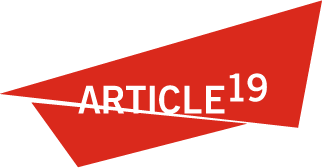
Dakar, Senegal (August 19, 2025) – The Rule of Law Lab at NYU School of Law and Article 19 Senegal and West Africa today welcomed the Government of Senegal’s steps towards adopting the country’s first access to information law. The organizations called on parliamentarians, who began an extraordinary session meeting on August 18, to improve the bill before its adoption by aligning it with international legal standards that enshrine access to information as a fundamental right.
On July 30, 2025, Senegal’s Council of Ministers approved a draft access to information law, which is expected to be adopted by the National Assembly before the end of August. The bill is part of a broader legislative framework aimed at enhancing transparency in public management and combating corruption.
“This is a decisive step towards the adoption of the law on access to information. It is the result of the ongoing commitment of Senegalese civil society, which has been campaigning for the adoption of an access to information law for years,” said Abdoulaye Ndiaye, Program Officer Access to Information at Article 19 Senegal and West Africa. “We will remain mobilized until the law is adopted and the body responsible for access to information is operational, so that citizens can fully enjoy their right of access to public information and data without obstacles.”
The Rule of Law Lab at NYU School of Law and Article 19 Senegal and West Africa jointly issued their comments on the draft bill and propositions to improve it in line with international legal standards, including with the African Union Model Law on Access to Information for Africa and the Declaration of Principles on Freedom of Expression and Access to Information in Africa 2019. The organizations’ joint comments recommend that the principle of maximum disclosure be strengthened, which would establish a presumption that all information held by public bodies should be subject to disclosure. This means that exceptions to access to information would be strictly limited and clearly defined. The comments also recommend strengthening mechanisms to appeal decisions that deny access to information.
“If parliamentarians and the executive adopt amendments in line with our suggested improvements, this law would end up being amongst the most progressive Access to Information Laws in Francophone West Africa,” said Amrit Singh, Professor of Practice and Director of the Rule of Law Lab at NYU School of Law. “If such a law is adopted and effectively implemented, it will be a crucial tool for protecting the rule of law in Senegal.”
The comments are intended for parliamentarians, civil society organizations, and other stakeholders seeking a progressive and efficient law to access information. The bill is part of a broader legislative framework aimed at enhancing transparency in public management and combating corruption. In addition to access to information, Senegalese parliamentarians will also consider before the end of August three other bills concerning the establishment of the National Anti-Corruption Office, protection of whistleblowers, and asset declaration.
Read the Full Comments (This is an unofficial English translation)
